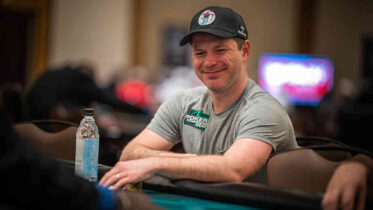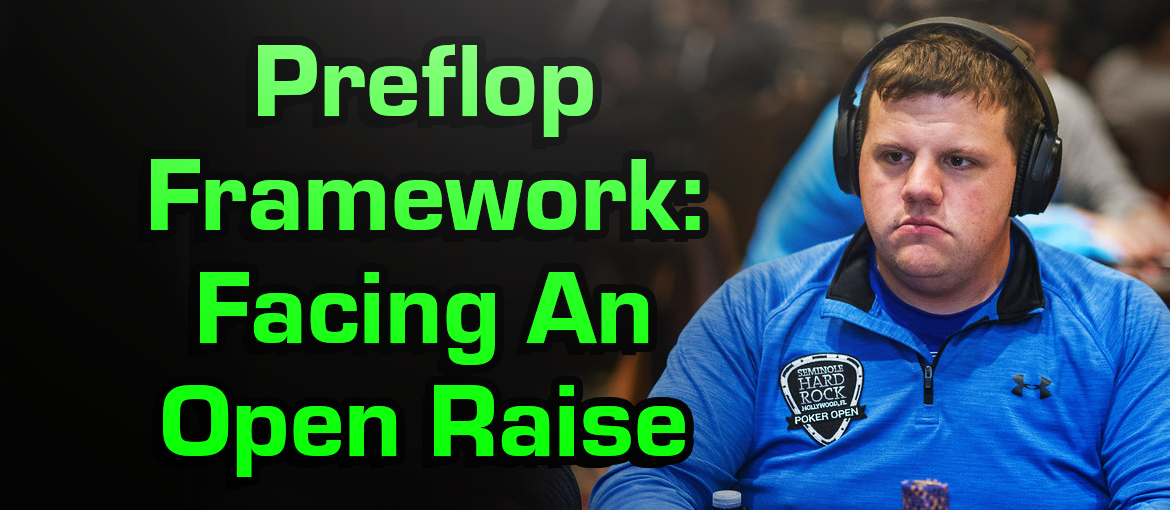Beating a high-stakes poker player takes a balanced approach, an understanding of advanced GTO poker concepts of the game, and a lot of dedication and effort. Beating players in poker home games, however, takes a whole different skill set.
This is not to say that applying a strategy similar to those top players use at high-stakes would not win in a home game, but there is a lot more value to be had in playing a much more exploitative strategy.
Poker home games are completely different from the games you may have seen on shows like High Stakes Poker or even most games you will see played at your local casino.
If you are looking to crush your poker home games, we have just the right tips that will transform your game and make you a big winner in the long run. Keep reading and find out what the best poker players do to adjust to the home game environment and thrive in it.
Tip #1. Play Tighter Than Most Players
One thing that poker home games are notorious for is the fact that people hate folding in them, which often leads to flops being seen five, six, or even nine ways.
While there are many spots in home games where playing a bit looser makes sense, you should still play a lot tighter than most other players in these games.
Typically, you will see two or three players in a home game play a bit tighter while everyone else will be putting chips in with a wide variety of hands, hoping to make something on the flop.
Your strategy should be to play fewer hands, be more mindful of position, and play more hands that have a decent potential to make the nuts, such as suited Ace high hands, pocket pairs, and suited connectors.
On the other hand, hands like off-suit connectors, gappers, and various other suited hands should not be a part of your poker range, although there will be spots where you may get priced in with such sub-standard hands.
Overall, you should probably be looking to play no more than 35% of all hands, and this is especially true when there are nine players at the table.
Tip #2. Don’t Worry About Balance
If you learned how to play poker by watching professional coaching videos or listening to top poker players talk about the game, you need to understand that the strategies you learned from these venues don’t need to be adhered to in poker home games.
Players in home games don’t think too much about what you are holding, and even when they do, they don’t have the proper skillset to narrow your range down, as well as pros do.

For these reasons, you don’t need to worry about balancing out your ranges in different situations too much and you can play a much more straightforward poker strategy.
For example, if you have a strong value hand, going for big bets and looking to extract value will be your go-to play.
While you would need to balance this out by making similar bets with bluffs when facing competent opponents, you don’t need to do that in a home game at all.
After all, many opponents will call you with a middle pair looking to catch their miracle card regardless of what you bet, so there won’t be too much point balancing your value bets with bluffs.
One thing to be mindful of is that there may be one or two other observant players in the game. Detect these players early and make sure to adjust your play when they are involved in hands.
Tip #3. Take Mental Notes on Your Opponents
If you were playing in a high-stakes poker tournament with some of the best poker players in the world, you would notice that most play a very similar and very strong style of poker.
In poker home games, on the other hand, you will see playing styles differ as much as possible, ranging from super tight and nitty to very loose and splashy to complete maniacs.
If you want to do well in home games, knowing exactly who you are up against is key, and the only way to discover this is by paying close attention and taking notes.

In the words of “Rounders” protagonist Mike McDermott, “If you can’t spot the sucker in your first half an hour at the table, you are the sucker!”
Indeed, identifying the softest spots in a home game will usually be pretty easy, as these players will be involved in more pots than anyone else and will often be quite vocal about it.
Players who make the most fuss and talk the biggest game are usually your easiest targets, and you should be focused on identifying exact leaks in their game.
Many home game players make the exact same mistake over and over again, and if you can spot a few such mistakes, you may be able to pounce on them many times over without anything changing.
Tip #4. Position Is Your Friend
There is no denying that position in poker is important in all poker games, but home games make the position even more valuable for a number of reasons.
Hands in home games will often go multi-way no matter how much you try to isolate players, which means you will need to make hands more often to win pots.
Being in position allows you to control the size of the pot and get more information before putting chips into the pot, and this makes the power of position even more valuable than usual.
As a general rule of thumb, you will want to avoid getting involved from the blinds and early positions with anything but very strong hands with a lot of potential.
In positions like the cutoff and button, on the other hand, you may want to get involved somewhat wider, especially when you are getting laid a great price and massive implied odds.
Tip #5. Do Not Bluff the Fish
You have probably already heard the expression “don’t bluff the fish” in the past, but you have also probably forgotten about it a few times over your life.
The truth is you can’t play poker without ever bluffing, but when playing in home games, you should be a lot more restrained with your bluffs.
There are certainly times in a poker home game when you will want to pull the trigger and make sure your opponent folds their busted flush draw or middle pair on the river, but those times need to be chosen carefully.

What’s even more, you need to be sure that the player you are trying to bluff understands what hands you could have, and is willing to let go of their hand before you try a big bluff.
If you bluff very often in home games, you will end up getting called a lot, and once everyone sees you bluffing a few times, your image will be completely ruined.
For that reason, you should only try bluffing very rarely, and if you do get caught bluffing, make sure to use that to your advantage later and make some abrasive and big bets when you actually do have the nuts. The fish won’t be able to let go and will pay you off just to see if you are bluffing again.
Tip #6. Be Honest with Yourself
If you play in poker home games often, you have surely had sessions in which you played your C-game or worse and allowed your game to blend in with everyone else’s.
If you want to actually beat home games, you will need to make sure you master your poker mindset, or at least be honest with yourself and quit when you’re not in control.
None of us are impervious to tilt and bad play, but the least we can do is be honest with ourselves and tell the truth about why we lost in a particular session.
While there will always be sessions where everything went wrong and you simply could not have won, there are many others in which you make a lot of mistakes that cost you money.
Make sure to approach your games analytically if you want to win or play low enough that you don’t care about your losses if all you want to do is gamble and have some fun.
Tip #7. Remember to Stay Respectful
Poker home games are chaotic, and if you are at all prone to tilting, you will need to go into them ready for things to get out of hand. Just remember that you’re all there because you love Texas Hold’em, Pot Limit Omaha, whatever poker game you’re playing.
When every hand is going five ways and people are calling raises with off-suit gappers, some crazy bad beats will happen whether you like it or not.
When they do, and you end up losing a pot that was yours by every right and logic, staying respectful to other players in the game is extremely important.
While it can be very easy to jump out of your chair and pull a “Phil Hellmuth” on a guy who doesn’t even know what he did wrong, doing so will create a negative atmosphere and could even scare the player away.
What’s even more, by telling your opponent what he did wrong in a hand, you might even end up teaching them how to beat you the next time, and that’s definitely the last thing you want to do.
The next time you play in a home game, make sure to stay respectful to everyone, say “nice hand” to your opponent no matter what happens, and take joy in knowing that games as soft as the one you are playing still exist.





